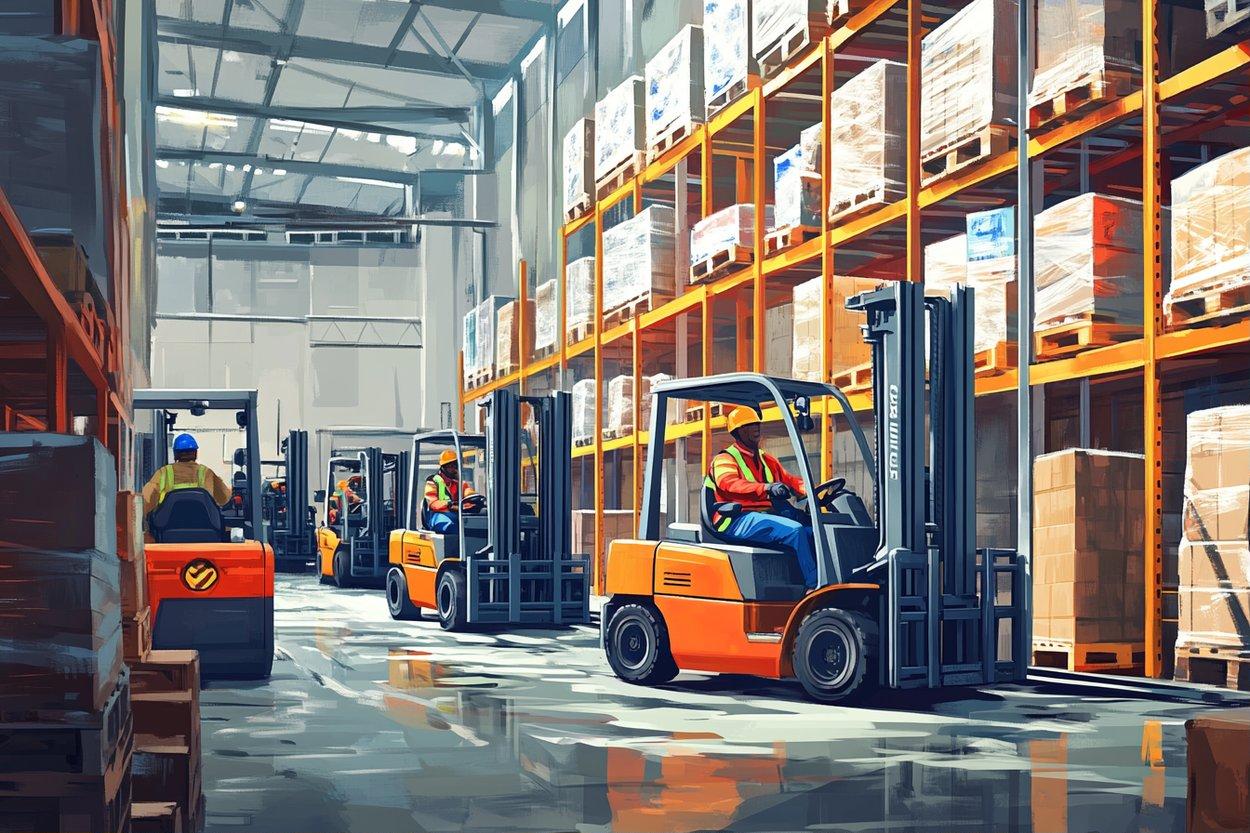Start Working in a Warehouse – No Experience Required
Interested in joining a logistics team? Warehouse roles offer a dynamic but organized setting. Workers contribute to efficient goods distribution and learn basic warehouse systems. Clear job descriptions and support from supervisors help ensure smooth adaptation. These jobs can also offer overtime and shift flexibility.

What are the typical day-to-day tasks in a warehouse environment?
Working in a warehouse involves a variety of tasks that keep the operation running smoothly. On any given day, you might find yourself:
-
Receiving incoming shipments and verifying their contents against purchase orders
-
Unloading trucks and moving merchandise to designated storage areas
-
Picking and packing orders for shipment to customers
-
Conducting inventory counts to ensure accurate stock levels
-
Organizing and maintaining the warehouse space for optimal efficiency
These tasks require attention to detail, physical stamina, and the ability to work as part of a team. While the work can be physically demanding, it also offers a sense of accomplishment as you see tangible results of your efforts.
What equipment will I use in a warehouse job?
One of the exciting aspects of warehouse work is the opportunity to operate various types of equipment. Some common tools and machinery you might encounter include:
-
Forklifts: These powerful vehicles are used to move heavy pallets and reach high shelves.
-
Pallet jacks: Manual or electric, these tools help transport pallets across the warehouse floor.
-
Inventory scanners: Handheld devices that track inventory movement and update stock levels in real-time.
-
Conveyor systems: Automated belts that move products through different stages of processing.
-
Packaging equipment: Machines that help seal, label, and prepare items for shipment.
Many warehouses provide on-the-job training for equipment operation, allowing you to develop new skills and potentially advance to more specialized roles over time.
How do warehouse staff contribute to supply chain efficiency?
Warehouse workers play a crucial role in the broader supply chain, acting as the link between suppliers, manufacturers, and customers. Here’s how warehouse staff contribute to overall efficiency:
-
Accurate inventory management: By maintaining precise stock counts, warehouse workers ensure that products are available when needed and prevent overstocking or stockouts.
-
Timely order fulfillment: Efficient picking, packing, and shipping processes help meet customer expectations for fast delivery.
-
Quality control: Warehouse staff inspect incoming and outgoing shipments, reducing errors and returns.
-
Space optimization: Proper organization of the warehouse maximizes storage capacity and improves product accessibility.
-
Data collection: By using inventory management systems, workers provide valuable data that helps companies make informed decisions about stock levels and purchasing.
What are the typical working hours and conditions in a warehouse?
Warehouse operations often run around the clock to meet demand, offering a variety of shift options:
-
Day shifts: Usually from early morning to late afternoon
-
Evening shifts: Typically from late afternoon to night
-
Night shifts: Overnight hours, often with a shift differential pay
Many warehouses operate on weekends as well, providing opportunities for flexible scheduling or overtime work. The physical environment can vary, but most warehouses are climate-controlled for comfort and product preservation.
What skills and qualities are valuable for warehouse work?
While no prior experience is required for entry-level warehouse positions, certain skills and qualities can help you succeed:
-
Physical fitness: The ability to stand, walk, and lift objects throughout your shift
-
Attention to detail: Accuracy is crucial when handling inventory and fulfilling orders
-
Teamwork: Collaborating effectively with coworkers to meet daily goals
-
Time management: Working efficiently to meet deadlines and productivity targets
-
Basic math skills: For tasks like counting inventory and verifying shipment quantities
-
Safety awareness: Following proper procedures to prevent accidents and injuries
Many of these skills can be developed on the job, making warehouse work an excellent opportunity for personal and professional growth.
How can I find and apply for warehouse jobs with no experience?
Finding warehouse jobs without experience is relatively straightforward:
-
Online job boards: Websites like Indeed, Monster, and ZipRecruiter often list entry-level warehouse positions.
-
Temporary staffing agencies: Many warehouses hire through agencies, offering a way to gain experience and potentially transition to permanent roles.
-
Company websites: Large retailers and logistics companies frequently post warehouse openings on their career pages.
-
Local job fairs: These events can connect you directly with employers hiring for warehouse positions.
When applying, highlight any relevant skills or experiences, such as teamwork, physical fitness, or attention to detail. Be prepared to pass a background check and potentially a drug test, as these are common requirements in the industry.
Starting a career in warehouse work can open doors to various opportunities in logistics, supply chain management, and operations. With no experience required to begin, it’s an accessible path to steady employment and skill development. Whether you’re looking for a short-term job or a long-term career, warehouse work offers a solid foundation for growth and advancement in the world of logistics and distribution.




